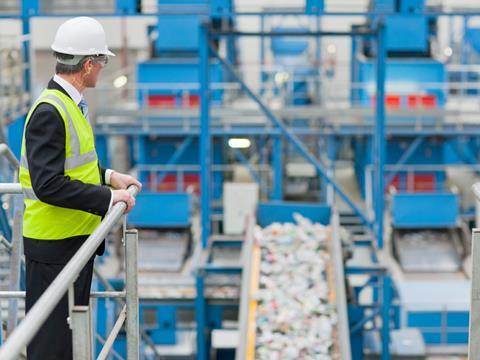
After a promising start to the year for many, weak demand, persistently high energy costs, and a shortage of skilled workers are currently negatively affecting manufacturers of plastic packaging in Germany, according to the German plastic packaging industry association.
More than half of the companies within the sector assess the current economic situation as bad and do not expect any improvement in the coming months. This is the result of a survey conducted by the IK Industrievereinigung Kunststoffverpackungen eV among its more than 250 member companies.
The primary reason for the current crisis, according to IK, is weak demand: More than every second manufacturer assesses the current demand for plastic packaging and foils as bad or very bad. Only 5% describe the demand as good. In addition to full warehouses, raw material prices, which have been falling since March, are also reportedly putting pressure on demand. Two out of three manufacturers expect that the sales prices for plastic packaging will continue to fall in the summer months.
Almost every fifth company says that it has reduced its production considerably as a result. A further 38% of the companies say they are reacting by reducing production on a medium scale and short-time work. Only 19% of the companies surveyed claim to produce without restrictions. IK reports that there are no signs of a trend reversal in the next few months – with more than every third company expecting a reduction in the workforce in the industry.
After the plastics recyclers reported a “massive drop” in sales at the beginning of June, IK asked its members what influence the crisis was having on the use of recyclates in plastic packaging. Martin Engelmann, General Manager of the IK, said of the results:
“For the individual companies, the use of recyclates is stable on average. On a scale from 1 (decreased significantly) to 100 (increased significantly), the use of recyclates achieved an average of 48 points. The companies that use fewer recyclates than before blame the weak demand for plastic packaging for the most part (48%). In second place, with 19% each, are customer requests and the lower prices for new plastics.”
IK also posits that “difficult framework conditions for industrial production in Germany” are affecting the plastics packaging industry. At least 11% of the companies surveyed say that they are considering relocating abroad, and 5% are apparently already in the process of relocating parts of their production – or the entire company.
“De-industrialization is taking place before our eyes and is happening faster than many would have thought,” Engelmann says – and he is calling on politicians to stop this trend. However, IK also notes that almost every second plastic packaging manufacturer is still planning investments in Germany.
If you liked this article, you might also enjoy:
The Lidl approach to packaging sustainability
How did Brazil achieve its 100% aluminium can recycling rate – and can it be replicated in the EU?
Experts have their say on the EU’s Packaging and Packaging Waste Directive revisions
A deep dive into the most important packaging sustainability trends and solutions














No comments yet